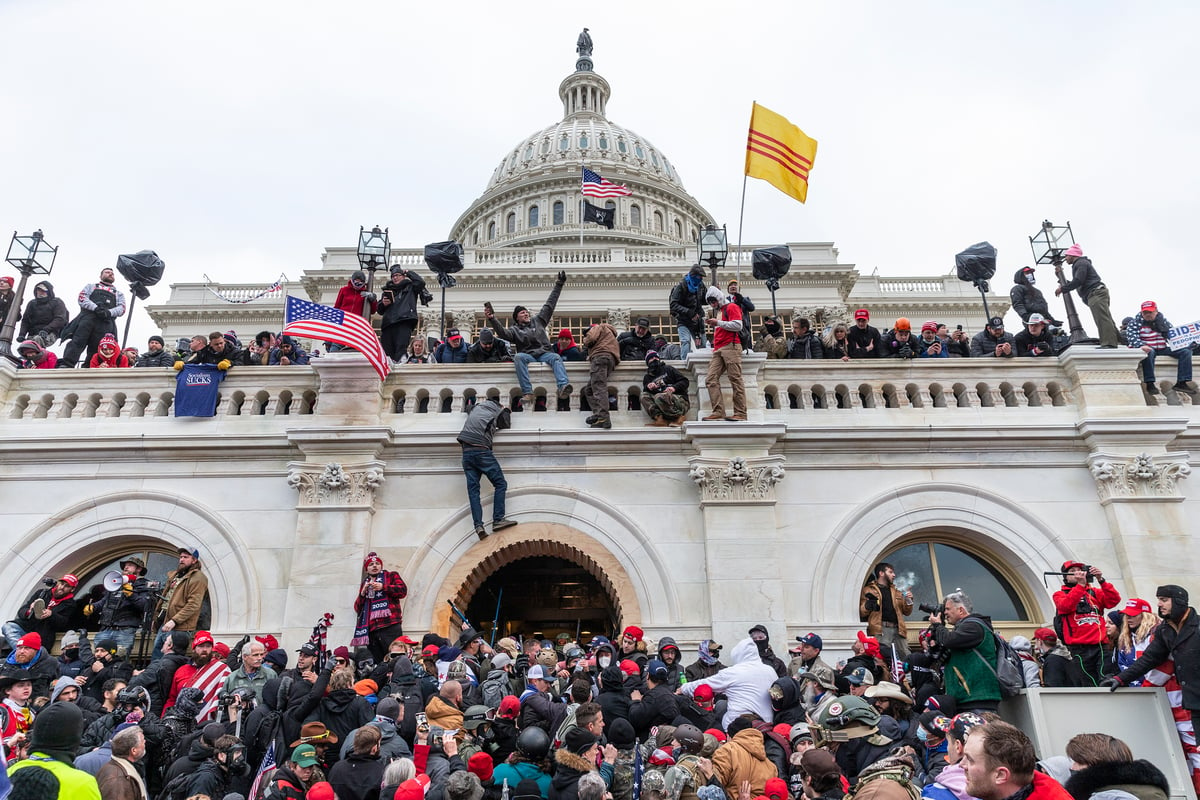.
Is the Old Testament Relevant?
“Jesus said, “Man shall not live by bread alone, but by every word that proceeds from the mouth of God.” Is the Old Testament relevant as well as the New?

Is the Old Testament still relevant today?
Can it be proven that Jesus meant both the Old and New Testament Scriptures in Matthew 4:4? Many today believe we don’t have to follow God’s instructions as stated in the Old Testament. Some even believe that portion of the Bible was “done away” or that it was written and preserved only for Israel or the Jewish people of long ago. Therefore, they feel it has no significance for us today. Is the Old Testament relevant to our lives?
What do the Scriptures tell us?
Part of our foundation
Paul explains how the New Testament Church was “built on the foundation of the apostles [the New Testament] and prophets [the Old Testament], Jesus Christ Himself being the chief cornerstone” (Ephesians 2:20). Christ was sent from God the Father as the messenger of the New Covenant — yet He preached that message entirely out of the Old Testament Scriptures.
Furthermore, what Scriptures did Christ use when He preached in the synagogue? In Luke 4:16-21 Christ read a prophecy from the book of Isaiah, and He explained to those present that part of that prophecy was being fulfilled as He was speaking to them.
For several years after the crucifixion and resurrection of Jesus Christ and the founding of the New Testament Church, the ministry only had and used the Old Testament Scriptures. Jesus Christ preached the gospel of the Kingdom of God, and He did it altogether out of the Old Testament.
Proof that Christ was the true Messiah
How was one to know that Christ was who He said He was—what proof did He give? A careful reading of John 5:36-39 shows Christ revealing several very important proofs that He was indeed the true Messiah.
- He said John was a witness, although there was greater proof.
- He then pointed out that the Father represented even greater proof.
- He also stated how the works He was doing were a witness or proof.
- He concluded by telling them the “Scriptures” themselves testified—gave evidence to the fact—that He was the Messiah.
Remember, the Old Testament Scriptures—the ones Christ was referring to—were the only Scriptures available at that time. The Old Testament is so important that one would not be able to prove Jesus of Nazareth to be the Christ, the Messiah, the Son of God, our Savior, without using the Old Testament.
Notice the “sign” Christ gave to those who asked of Him proof that He was the Messiah. “Then some of the scribes and Pharisees answered, saying, ‘Teacher, we want to see a sign from You.’ But He answered and said to them, ‘An evil and adulterous generation seeks after a sign, and no sign will be given to it except the sign of the prophet Jonah. For as Jonah was three days and three nights in the belly of the great fish, so will the Son of Man be three days and three nights in the heart of the earth [grave or tomb]’” (Matthew 12:38-40).
Christ directed those asking for proof that He was indeed the true Messiah to examine the Old Testament writings of the prophet Jonah concerning the length of time He would be dead.
Christ’s admonition to believe the Old Testament Scriptures
Jesus also said to those calling Him into question concerning His messiahship, “Do not think that I shall accuse you to the Father; there is one who accuses you—Moses, in whom you trust. For if you believed Moses, you would believe Me; for he wrote about Me. But if you do not believe his writings, how will you believe My words?” (John 5:45-47).
Moses wrote the first five books of the Old Testament—often referred to as the “Law” or the “Torah.” Christ is pointing out to these doubters that if they did not believe what Moses wrote, they would not believe what He was telling them. Said another way, Christ was telling them that what Moses wrote is just as much a part of Scripture as what He was saying.
Moreover, it is not only necessary to believe what Moses wrote in the first five books of the Bible, but we must also believe what all the prophets wrote, in addition to the Psalms and other writings—the entire Old Testament.
Luke records what Christ had to say about the authenticity of the Old Testament, “Then He said to them, ‘O foolish ones, and slow of heart to believe in all that the prophets have spoken! Ought not the Christ to have suffered these things and to enter into His glory?’ And beginning at Moses and all the Prophets, He expounded to them in all the Scriptures the things concerning Himself” (Luke 24:25-27).
Luke adds more, “Then He [Christ] said to them, ‘These are the words which I spoke to you while I was still with you, that all things must be fulfilled which were written in the Law of Moses and the Prophets and the Psalms concerning Me” (verse 44). Christ authoritatively states His approval of the entirety of Scripture, showing the Old Testament is relevant.
Paul’s support of the Old Testament
Paul reminded his young associate Timothy, “And that from childhood you have known the Holy Scriptures, which are able to make you wise for salvation through faith which is in Christ Jesus” (2 Timothy 3:15).
What were the Scriptures Timothy would have known from childhood? The Old Testament Scriptures were the only ones Timothy had.
Paul continues, “All Scripture is given by inspiration of God, and is profitable for doctrine, for reproof, for correction, for instruction in righteousness” (verse 16). Notice Paul said, “All Scripture,” not just the New Testament.
Peter, Philip and Paul preached Christ from the Old Testament
Peter preached a powerful sermon on the Day of Pentecost—the beginning of the New Testament Church—that resulted in the conversion of 3,000 people. Moreover, Peter preached his sermon using only Old Testament Scriptures (Acts 2:14-41).
What about Philip’s example of preaching? Philip knew that Jesus was the Christ because of what he had read in the Old Testament Scriptures. Philip helped an Ethiopian understand what the Scriptures said about Christ out of the Old Testament (Acts 8:26-35).
But some will say, “You can’t do that; you can’t preach Christ out of the Old Testament!” You can’t? Peter did it, Philip did it, Paul did it and, as we have seen, Jesus Christ did it!
Speaking of Paul’s preaching, notice his use of the Old Testament, “So when they had appointed him a day, many came to him at his lodging, to whom he explained and solemnly testified of the kingdom of God, persuading them concerning Jesus from both the Law of Moses and the Prophets, from morning till evening” (Acts 28:23).
Matthew and Isaiah add more
Matthew makes an interesting statement as he records King Herod’s demanding request of the chief priests and scribes concerning where Christ was to be born. Why would Herod make such a demand? Was it because he suspected this information was recorded in a prophecy of their Scriptures—the Old Testament? If so, he was right.
Notice their response to Herod’s question, “So they said to him, ‘In Bethlehem of Judea, for thus it is written by the prophet.” The chief priests and scribes continued by quoting the prophet Micah, “But you, Bethlehem Ephrathah, though you are little among the thousands of Judah, yet out of you shall come forth to Me the One to be Ruler in Israel, whose goings forth are from of old, from everlasting” (Matthew 2:5; Micah 5:2).
The prophet Isaiah tells us that the Messiah would be born of a virgin and His name would be called “Immanuel” (Isaiah 7:14). This prophecy was fulfilled according to Matthew 1:22-23.
So the Old Testament Scriptures add yet another detail about the birth of Christ.
Moreover, Isaiah recorded several more prophecies about Christ, all of which were fulfilled. Some of the prophecies in the book of Isaiah point to the time when the Messiah was to be born and grow up from a child. The prophet also explains how Jesus was to be despised and rejected, not hailed as a mighty King and Deliverer. Again, we find the Old Testament is relevant in filling in more details about the life of Jesus Christ (Isaiah 53:1-9).
Additional points of interest
- The New Testament quotes the Old Testament more than 1,000 times!
- The four Gospels (Matthew, Mark, Luke and John) refer to the Old Testament Scriptures on an average of three to four times per chapter.
- Of the 39 books in the Old Testament, Christ, in the book of Revelation makes references to 31 of them.
- In the 22 chapters of the book of Revelation, there are 228 references made to the Old Testament—that’s an average of 10 times per chapter.
- Actually, there are only four New Testament books that do not have a direct quote from the Old Testament: Philemon and 1, 2 and 3 John (An American Translation—The New Testament in the Language of Today by William F. Beck, 1964).
The New Testament is based on the Old Testament. How would one be able to understand the book of Revelation, for example, without Old Testament writers like Daniel and several of the other prophets?
Christ meant what He said
Therefore, when Christ countered Satan in Matthew 4:4 by saying man must live by “every word that proceeds from the mouth of God,” Jesus meant exactly what He said. So is the Old Testament relevant? Yes, Christ meant “every word”—in both the Old and New Testaments—the entirety of the Bible, not just part of it.
For further study on the Old Testament, read the article “Old Testament.” From: https://lifehopeandtruth.com/bible/holy-bible/old-testament/is-the-old-testament-relevant/
________
Pharaoh's Bad Marriage
“Exodus 1:10 Come on, let us deal wisely with them; lest they multiply, and it come to pass, that, when there falleth out any war, they join also unto our enemies, and fight against us, and so get them up out of the land.
And we all know how that worked out.
There are four ways to preserve a relationship that has begun to deteriorate: - Disable the other person. Through emotional abuse, you can make a person doubt themselves and their ability to survive on their own. Through physical abuse, you can confine or even cripple a person so that they are physically incapable of leaving. Perhaps the most common method today of disabling a person to keep them in a relationship is by keeping them financially dependent. Your credit card issuer and your neighbor with two upside down mortgages can tell you how effective this tactic can be.
- Instill fear of the unknown. Convince the other person that there is a big bad wolf hiding behind every tree outside the door, that every person they encounter will take advantage of them, and they will be very reluctant to strike out alone. This method has worked very well for politicians throughout history.
- Bond. Be friends. Spend time together in situations that develop emotional attachment. Study, explore, play, fight, and work together. Have an adventure.
- Improve yourself. Make a relationship with you look more attractive than a relationship with someone else by becoming a better you. You have probably heard it said that you can’t change someone else. You can only change you. I haven’t read it yet, but Athol Kay’s Married Man Sex Life Primer appears to be based on this idea. It’s on my reading list.
Each of these methods works to a greater or lesser extent and there is a time and place in which each would be appropriate. A healthy relationship, however, will be almost exclusively characterized by methods three and four. Pharaoh tried to keep the Hebrews in Egypt by physically and financially hobbling them.
Although they wanted more than ever to leave Egypt, they had no ships, no weapons, no chariots, and no gold with which to obtain such things. They had no allies. They came to believe that they were too weak to face the Canaanites and that their God was too weak or too busy to rescue them. Pharaoh’s strategy might have worked if he had not dismissed Joseph’s God along with Joseph himself. God is the champion of the oppressed and does not allow his people to be abused, enslaved, and terrorized forever.” From: https://soilfromstone.blogspot.com/2012/01/pharaohs-bad-marriage.html?
_______
Update
We three had our Bible study for the Sabbath School on Thursday because I had surgery on my left eye on Friday. The bus that had taken me there was not one of the usual busses, it was rattley, squeaky and he drove way over the speed limit with the radio blaring. The driver insisted that I should call him when I needed to be picked up and even gave me his own phone number. He must have been someone that the bus company contracted because the bus didn’t have the bus company logos on it.
Wendy, my daughter, met me at the ophthalmologist so we went to lunch at Cracker Barrel, and she shopped a bit for craft stuff. My eyes were dilated so I couldn’t navigate too well but I made it. When she called for the bus to pick me up and told them that I didn’t want to go home on the same bus, they put us on hold for so long, twice, that Wendy drove me home.
Then about 5.00pm the internet, phone and cable went out, and my cell phone wasn’t working either. A high, wide load had been illegally driven down the main drag of the little city of Navasota and pulled the overhead wires loose. But, thank goodness, we did have electricity. My cat was sitting staring at a blank TV! So I went to bed to let my eyes rest and sort themselves out. A couple of hours later I was able to see well enough to read a book until I fell asleep. Everything was fixed about 3.00am.
I don’t know whether the surgery has fixed my ‘light blindness’ yet because it was cold and overcast when Sherry and I went to the church the next day.







 For those who’ve had children, the nine months from conception to birth are a period of mystery and awe.
For those who’ve had children, the nine months from conception to birth are a period of mystery and awe.











